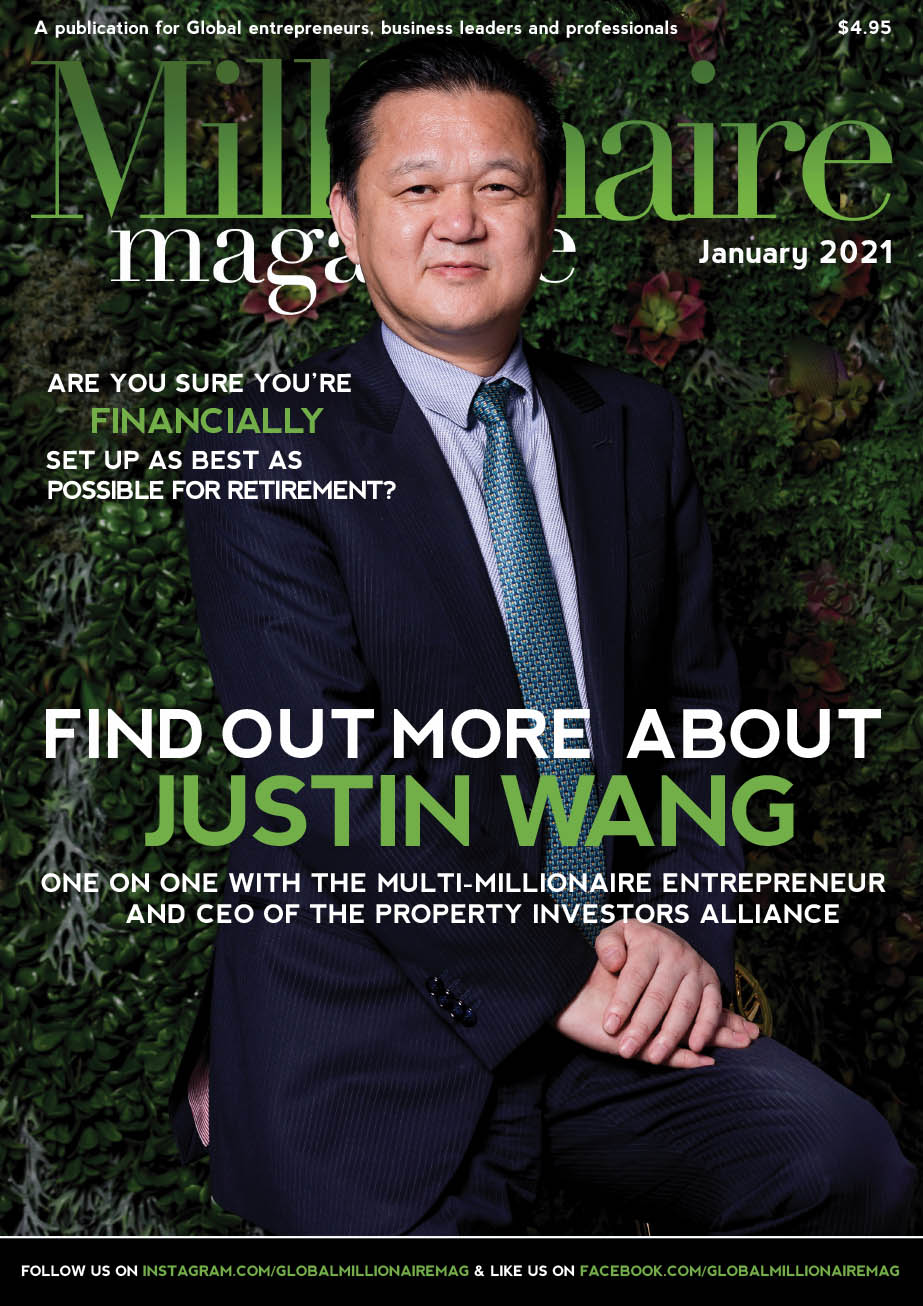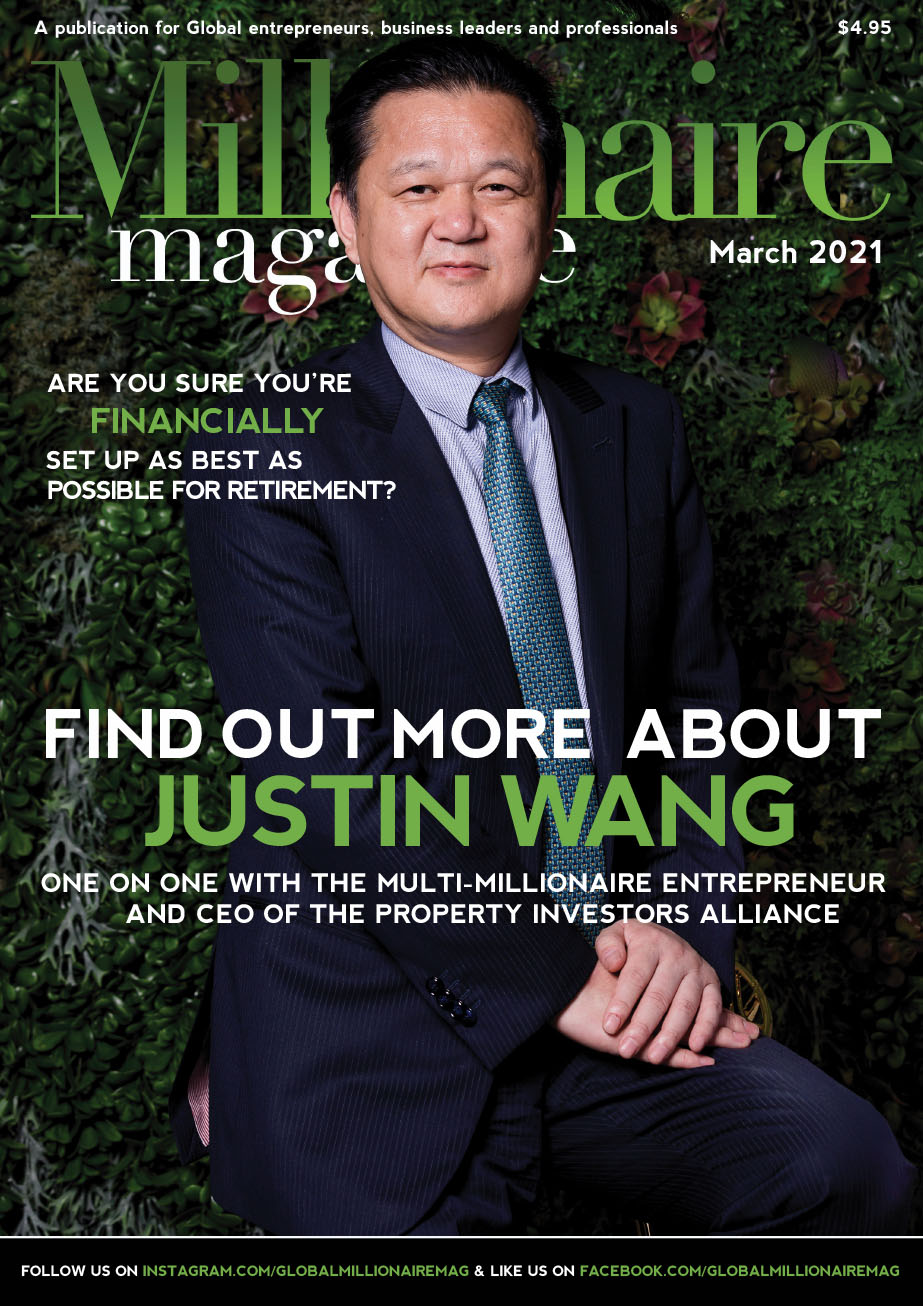
Justin Wang built PIA (Property Investors Alliance) at the time where he realized the profitability of the Sydney residential property. His considerable charisma would go on to spearhead a veritable empire of altruistic financial freedom.
Wang associates his accomplishments with always insisting upon his dream, despite his humble origins. He credits his grandmother with instilling the crucial discipline for fostering his innate abilities. His upbringing was greatly influenced by Chinese tradition.
It was this fortuitous and fruitful approach – of understanding the process of giving and receiving – that would prove to be of great importance in Wang’s professional life. When Wang became a teacher, he noticed his colleagues struggling with money concerns. It was here that he found a way to ‘give back’ and to ‘find his calling’ – all in the one serendipitous instance. He was able to align his spirit of collaboration with his skill for finance to ‘break the mould’.
Wang explains that only ‘a few people work for fun’ whilst most work ‘for the bread and butter – for survival’. Luckily, in his lifetime he was able to transcend a mediocre existence for one that met loftier goals – but, it was an experience that was not without its fair share of trials and tribulations.
He resigned from being a high school teacher and he decided to try something else and that’s when he eventually came to Australia – because he wanted to achieve financial freedom. However, he found it very difficult at first to make money in Australia, even though the income is higher in Australia than in China, he could still only save a few dollars.
He quickly found a way to remedy the situation. This was how PIA was born. Wang, once more, credits the realization of his dreams to his two-fold approach to prosperity: invest in a business and then advise others to do so. He feels that if he didn’t do that, he probably would not have achieved so big a portfolio as he currently holds today.
For Wang, the priority of a business owner always lies with the stakeholder/s. This includes all parties to the arrangement, as well as the interests of society as a whole. This holistic approach is the cornerstone of Wang’s success, and functions as a valuable lesson in entrepreneurial tactics.
Justin Wang is the embodiment of the self-made businessperson. From unassuming beginnings to life as a property magnate – he now personifies the paradigm for financial freedom. It always comes down to abundance as generated by collaboration. The Global Millionaire magazine recently caught up with Justin to discuss his journey to entrepreneurship and here’s what went down:
Could you please give us a brief background about yourself and how you became an entrepreneur?
I actually arrived in Australia back in 1993, before that I used to be a high school teacher in China. When I first arrived in Australia, life was very tough. I worked in restaurants, in manufacturing as well as in sales to get by – it was a struggle. I was earning around $30,000 a year at the time and I felt that I needed to earn more if I wanted to eventually achieve financial freedom. Australia is a rich and developed country compared to China so my plan was to come to Australia, make good money then retire in China forever and enjoy my life. I started the business back in 2005, at the time, the market took a downturn so many people believed that buying a property is no longer a good investment. But then based on my research and experience of buying my first property back in 1996 and then a few more properties later on – the experience taught me that investing in Sydney residential property is always a good move. So in 2005, I started to publicly promote my concept – the PIA concept to encourage other people to continue to invest in Sydney properties. The main reason I started my business is because I believed that everyone needs to find a way to achieve financial freedom. The second reason is because I truly believe Sydney properties is one of the best assets/investments that can help you achieve this goal. The third reason is because as an investor, I felt that I should share my knowledge and understanding. So in fact, I actually built PIA for other people’s benefit – to help people.
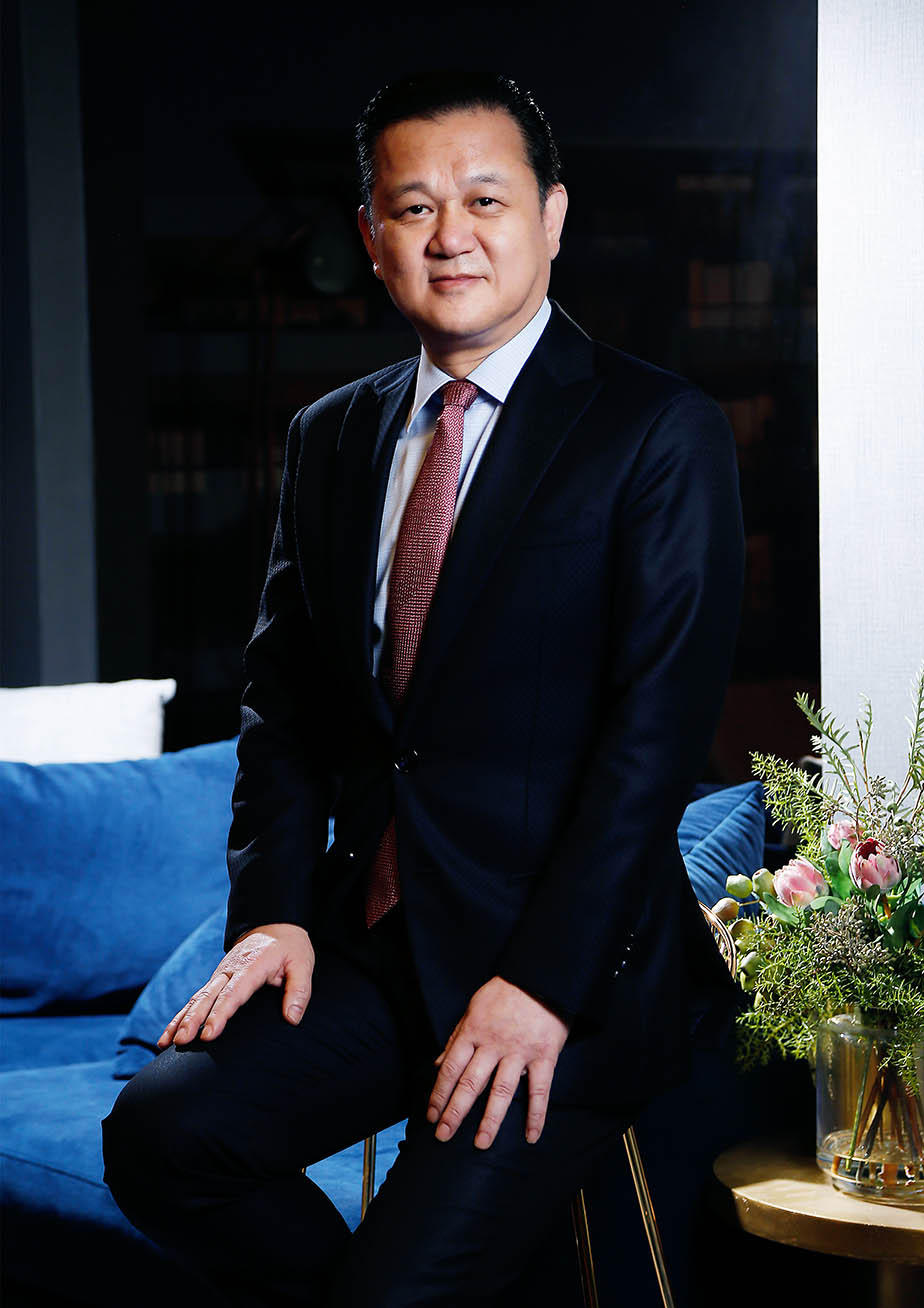
Photo Credit: Pedro Virgil
Can you tell us more about your business?
As you know, my business is called PIA (The Property Investors Alliance). When I first started the business, my biggest frustration was that I found the property industry in Australia was very backwards. When I say backwards, I’m talking about the structure. Normally the economy is market-driven; but for the Australian industry, it’s somehow product-driven. The developer would pay millions of dollars to build apartments but then they have to find a way to find buyers as well as establish a distribution channel. Traditionally in this industry, the purchaser/buyer doesn’t trust the agent, and the agent doesn’t trust the developer either. So I decided to build a system of buyer-agent -builder integration to establish trust within all parties involved. That’s the PIA business model, I built one platform to promote the PIA investment concept. Then I recruited a lot of young, energetic people to become sales agents. Our sales agents are different from the traditional real estate agents though. The traditional real estate agents’ approach to selling properties is to bring people to the showroom once there’s a vacancy, put out an ad somewhere, and wait for people to come. Our tactic is different; I’ve instructed my sales agents to go out there and mingle with people – educate them, and explain to them that buying a property is not just about buying a home, it’s also about wealth creation – it’s about your future retirement. I’ve also instructed my team to help people to address any concerns and train them to become professional investors. Once we’ve got clients then we can create demand and then we can present this demand to certain developers who will then partner with us. So the PIA sales agent’s job is not to sell properties like a typical real estate agent, but instead, provide education, service and create demand – that’s our main business model.
What are you currently doing to maintain/grow your business especially in this pandemic?
As we all know, this pandemic has caused major damage to the Australian economy as well as the property industry. Luckily, my company is not a typical company, PIA is more of a platform – an effective and efficient platform. So even during the pandemic, we still had a very healthy cash flow. Even in this current market, we have not lost our staff because our sales team is confident with the future of the industry. Our sales team is still actively seeking people and contacting people. We also have a very strong client base. Typically, new buyers have no confidence in this market. But the good thing is, our clients understand our concept so they have no fear of investing despite the pandemic and in fact, many of our clients have been continually taking advantage of this new market and buying more properties.
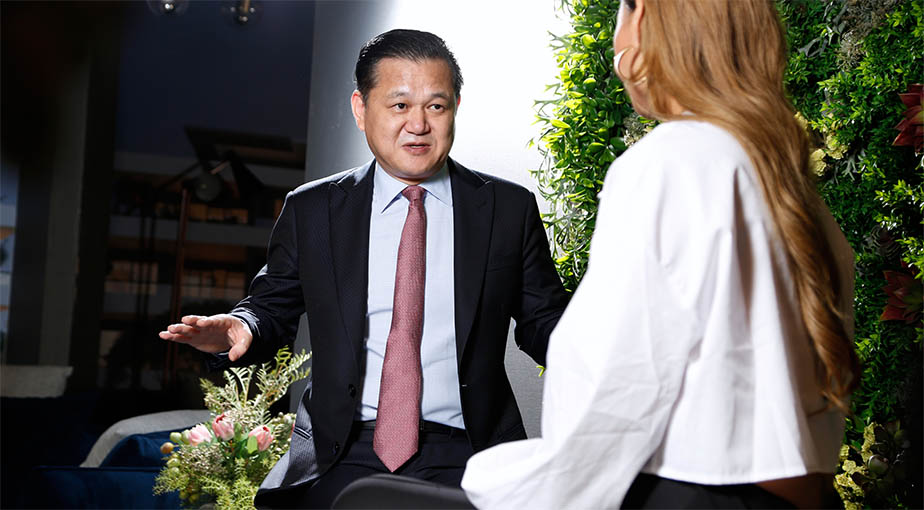
Photo Credit: Pedro Virgil
Why do you think investing in property is the best and most efficient way to become financially free?
This is a very good question. Personally, all my wealth is in Sydney residential properties. I’ve never had any interest in shares, I’ve never bought shares – this is just my personal opinion, by the way, I’m not providing financial advice. So why do I like property? The first reason is because property is real – it’s something you can touch and control under your name. It’s not like other investments that you can’t control. The second reason is, Sydney residential property is quite unique – it’s not affected by the state of the economy, instead, it’s driven by the true demand which is population growth. Even if you check the history of the Australian property market, the state of the economy can go up and down, and the interest can vary from high to low and vice versa but the value of Sydney properties and rental income will always go up. The population of this city always keeps going up, so as an investor, you’re a winner. The third reason is if you want to invest in other investments you need money upfront, while in this investment model you can actually borrow money from the bank to start your investment journey so you’re not taking money out of your own pockets. Even if you get rich from your business or investing in the share market, you still need to invest your money in the right asset – and for us, it’s always going to be Sydney residential properties.
Here are 3 reasons why:
1. Ownership: For most assets, there’s no guarantee of ownership which is very dangerous.
2. Passive income: Rent is a very good and stable passive income even in today’s economy.
3. Value: You need an investment where the value continues to appreciate. Sydney residential properties have proven time and time again that its value is always increasing.
What is your main tactic when it comes to making more people aware of your brand and engaging your customers?
Actually, I’ve never had a marketing strategy for PIA. I’m like a farmer, I’m happy to plant the seed and watch the tree grow from the seeds. Word of mouth is our main marketing tactic. The PIA brand has always been about word of mouth and customer satisfaction. Many people probably aren’t aware that PIA is such a significant business, we have thousands of investors, we have a massive office, we invest billions of dollars each year and we manage 6,000 to 7,000 properties annually.
What is the most difficult part of your business?
The world keeps changing too fast. That’s probably the biggest challenge for us because the client we’re facing now is a completely different client from 15 years ago.
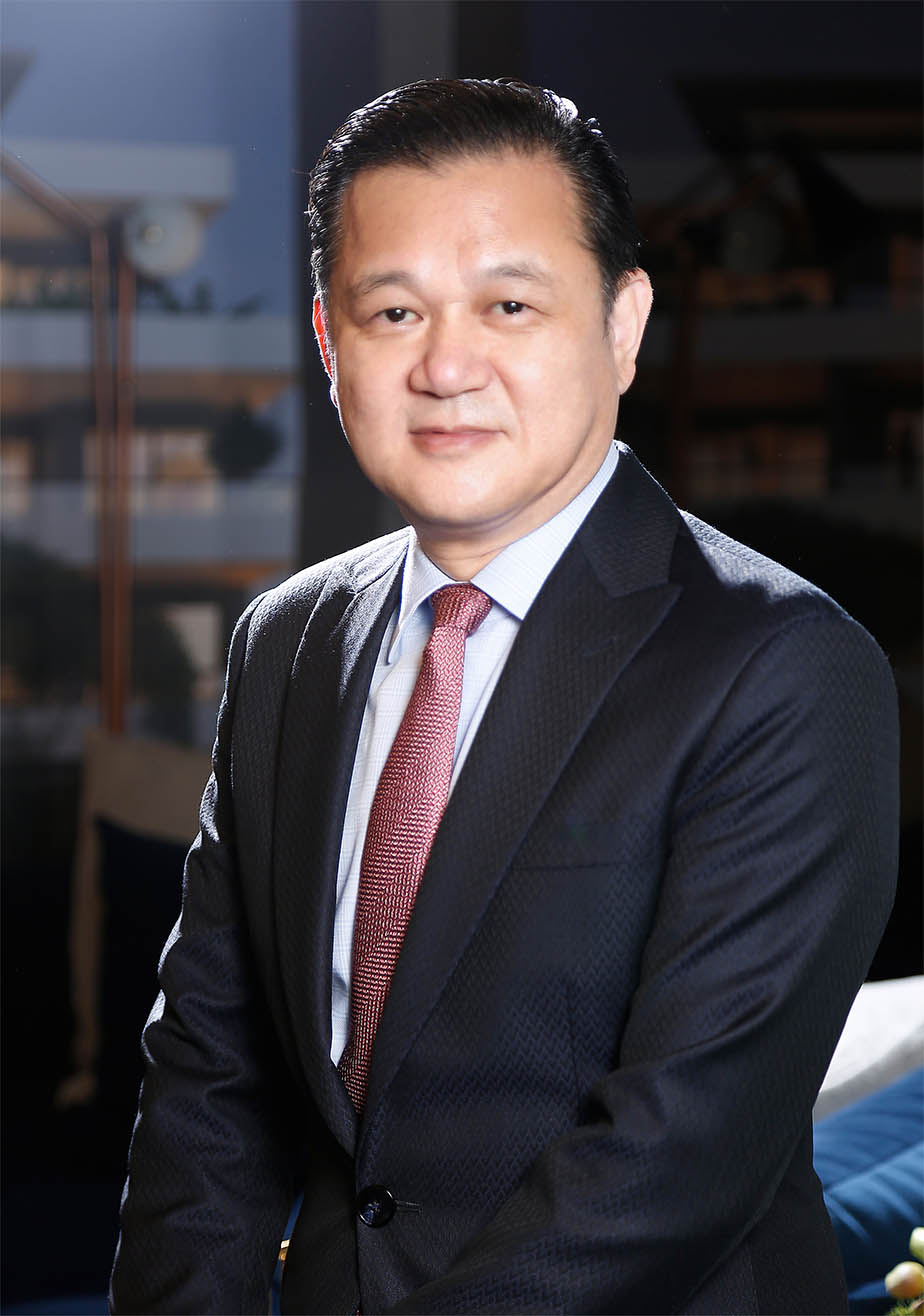
Photo Credit: Pedro Virgil
Have you ever thought about writing a book?
Yes, of course. My background is Chinese literature. Actually, my original dream was to gain financial freedom then afterward write a book and become a professional author. Of course, I’m currently too busy with the PIA business, but eventually, I want to finish a book about my investment concept.
What do you usually do in your spare time if you’re not working on your business?
My life is very simple. My hobbies are reading and writing Chinese calligraphy and practicing traditional Tai Chi.
What advice would you give to a potential investor?
Buying or renting a property is not about buying a home – it’s whether or not you can continue living in this beautiful city in the future. Because we have an aging population – therefore, the demand for property will always be increasing but the land availability in the city will keep decreasing. Eventually, it would be almost impossible to afford rent in the city. Hence, you need to buy a property now before it’s too late.
What advice would you give to a newbie Entrepreneur setting up their first business?
So many people want to start a business because they want to make money. But before you even think about making money, you need to think about what you’re going to do for our society. You need to identify people’s needs first. If you find that there are problems in the society, the market, or a certain industry and you can find the solution to fix their problems, your business will definitely be successful. The money will always come to you as long as you think about other people’s needs first.
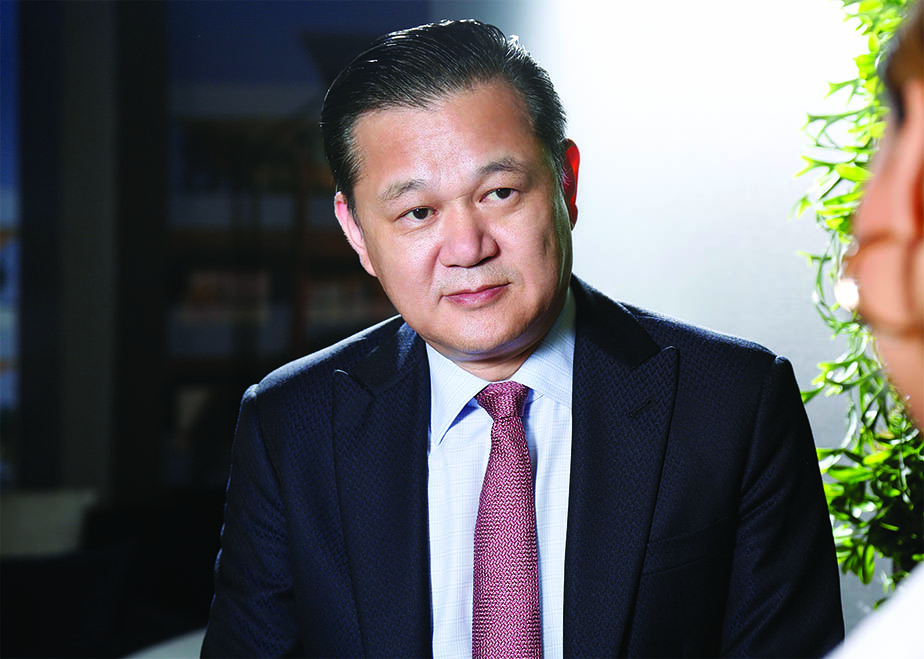
Photo Credit: Pedro Virgil
